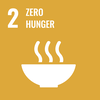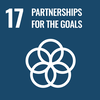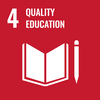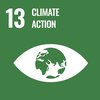The Most Important in Brief
The United Nations World Food Programme is the world’s largest humanitarian organization saving lives in emergencies and using food assistance to build a pathway to peace, stability and prosperity for people recovering from conflict, disasters and the impact of climate change. In 2020, WFP was awarded with the Nobel Peace Prize for its efforts to combat hunger globally and to improve conditions for peace in conflict areas.
-
Goals
Powered by the passion, dedication and professionalism of over 23,000 staff worldwide, WFP has a presence in over 120 countries and territories to bring life-saving food to people displaced by conflict and made destitute by disasters, and help individuals and communities find life-changing solutions to the multiple challenges they face in building better futures. Our ultimate goal is to create a world where there is zero hunger.
-
Principles
WFP is an international organization. All of its work is guided by the core humanitarian principles of humanity, impartiality, neutrality and independence. These tenets ensure that our life-saving assistance gets to those who need it most, regardless of nationality, race, gender, religious belief, class, political opinions, status or location. These humanitarian principles drive the way WFP operates, including in complex, fragile and unstable environments, which are often in active conflict zones. The humanitarian principles provide guidance on how to secure unhindered access to the most vulnerable people for WFP and its partners, while seeking to ensure the safety and security of its staff.
-
Measures
1. Implementation team in the field - Consists of regional bureaux and country offices - WFP has a presence in over 120 countries and territories, with our work covering a broad range of activities to save and change lives, with the ultimate goal of a world with zero hunger. 2. Monitoring and evaluation process - Whether it is delivering assistance in the midst of conflict or helping in the aftermath of a natural disaster, WFP is required to respond readily to crises or emergencies. Being accountable to the people we serve and those that provide funds, we need to measure performance and demonstrate results while meeting the needs of beneficiaries. - WFP works with partners on the ground to assess needs and support programmes to reach zero hunger. As we plan, design, implement and report on our activities, we are also responsible for monitoring and evaluating our efforts, and take every opportunity to learn first-hand from our operations and projects. - Continuous monitoring of achievements and overall performance generates the information and data to tell WFP and its partners if the approaches chosen are successful. Learning from that evidence is necessary in order to adjust projects and report effectively on results. - Regular, independent evaluations are needed to determine whether we are doing the right thing, if we are achieving results and whether or not we could do thing differently. This ensures both accountability to donors and learning for the organization. 3. Very clear process for ensuring fiduciary risk is minimised. WFP is considered highly risk-averse in this space; whilst it accepts that WFP remains exposed to these risks, WFP recognizes its duty of care to staff, its obligations to stakeholders, and commits to take prompt corrective action on matters of internal conduct.
-
Financing
WFP is funded entirely by voluntary donations. We fundraise every dollar that we spend for operations worldwide and we raise our money via governments and the private sector, including companies, individuals, philanthropists, and foundations. As of 15 January 2024, WFP has received US$ 8.5 billion of confirmed contributions for 2023 from 102 funding sources (government donors, private sector, UN, IFIs and other organisations).
Area of Impact
The United Nations World Food Programme is the world’s largest humanitarian organization saving lives in emergencies and using food assistance to build a pathway to peace, stability and prosperity for people recovering from conflict, disasters and the impact of climate change. In 2020, WFP was awarded with the Nobel Peace Prize for its efforts to combat hunger globally and to improve conditions for peace in conflict areas.
- +41 61 278 93 83
- office@stiftungschweiz.ch
- https://stiftungschweiz.ch/
- Basel, Basel-Stadt
- Facebook Profile
- Instagram Profile
- Youtube Profile
- LinkedIn Note
- December 19, 1961
-
Front Office
-
Sophia Rowles AddedPPF Global Philanthropy Project Coordinator
-
Anuradha Chandran AddedPPF Global Philanthropy Manager for Europe
Last updated on February 21, 2024




